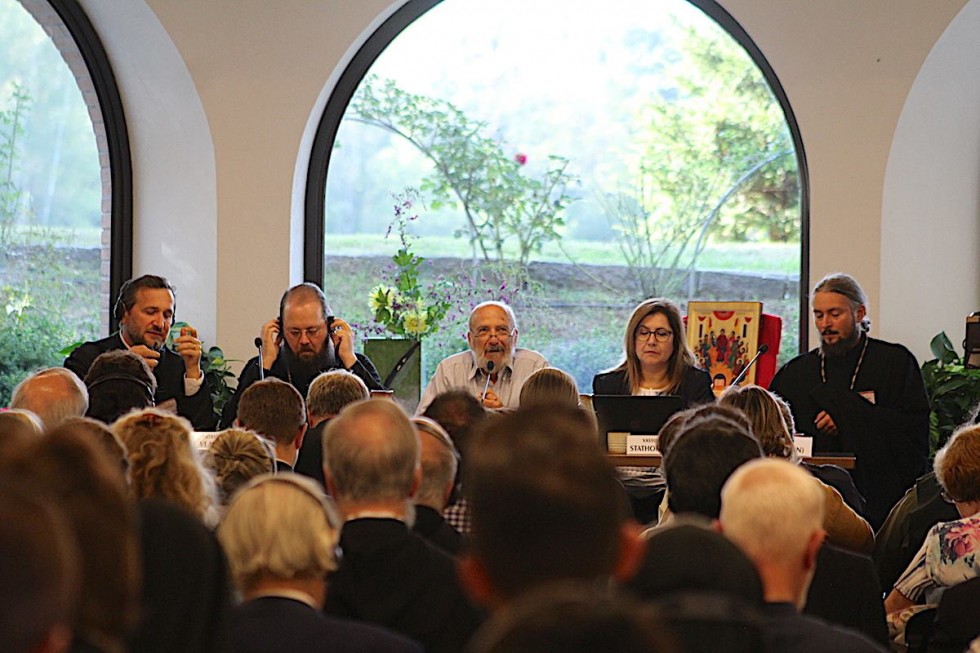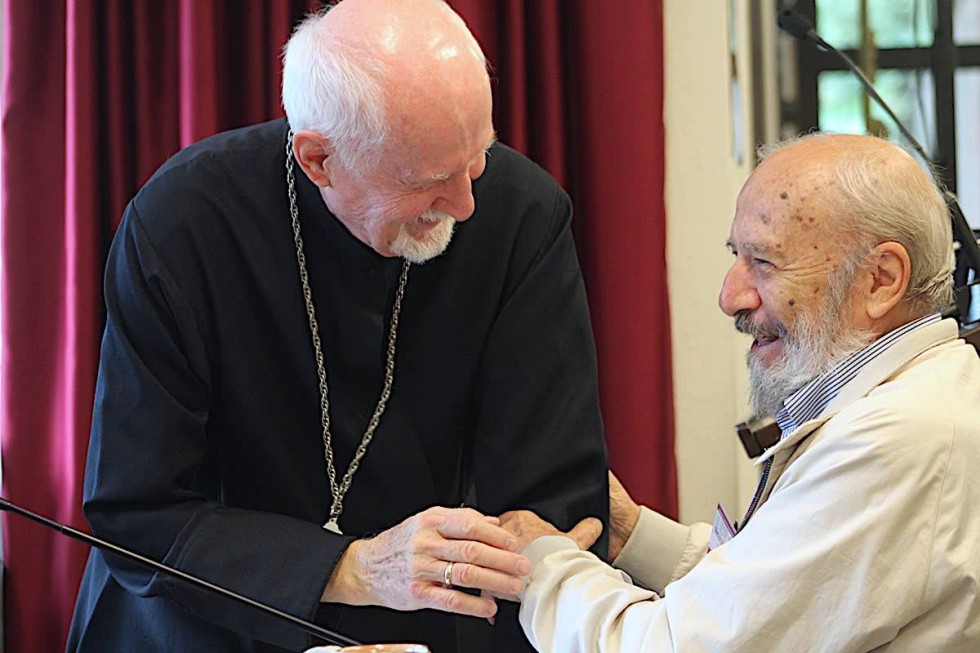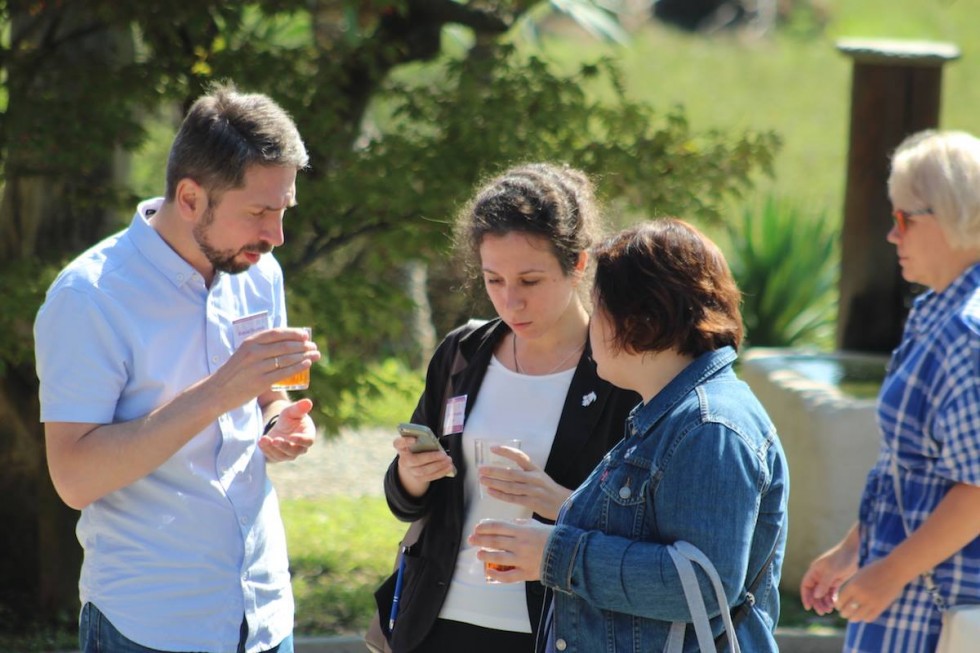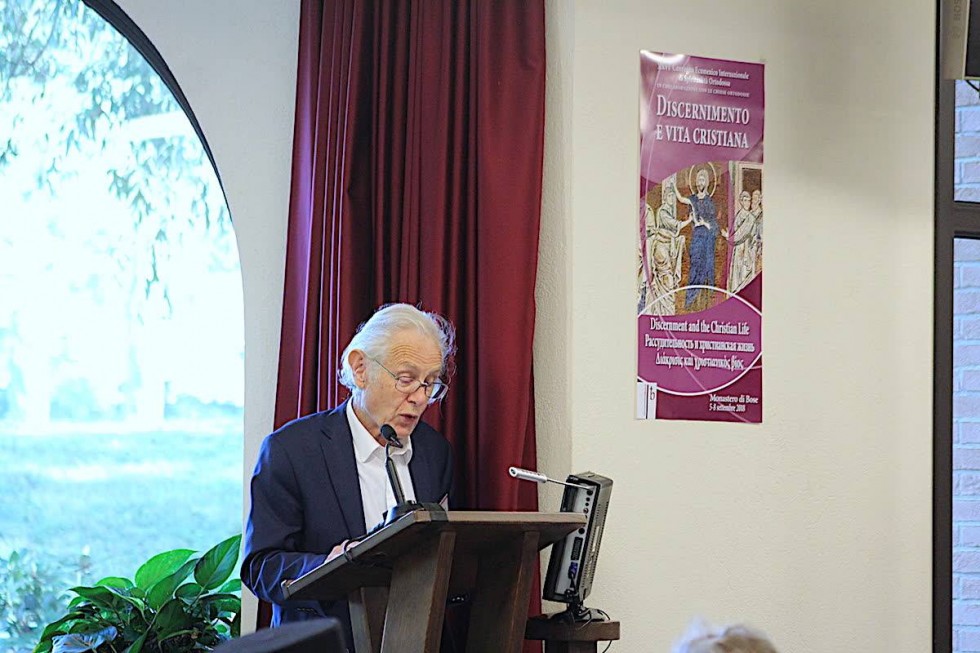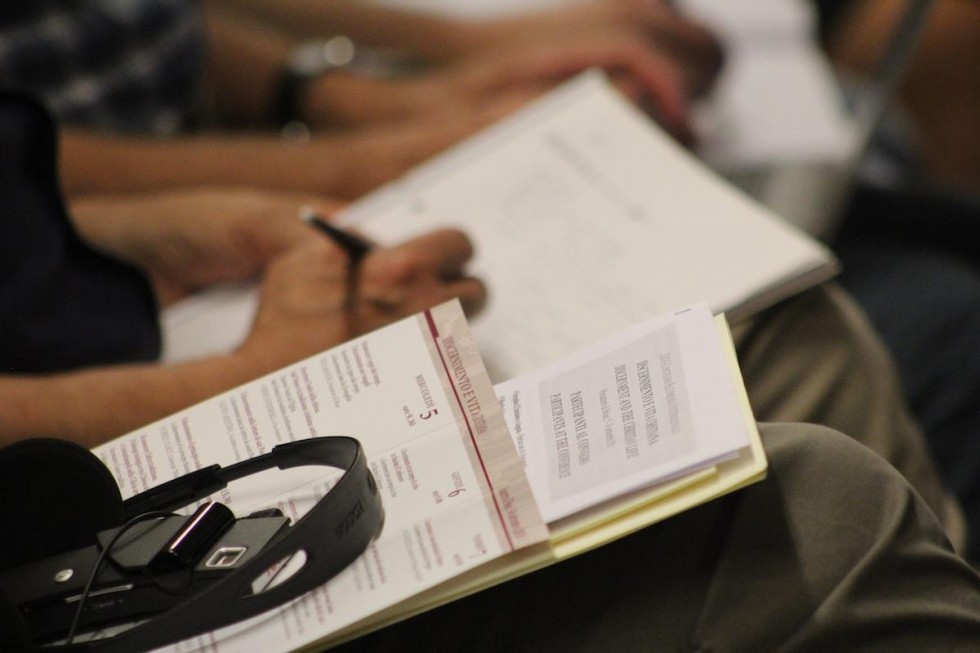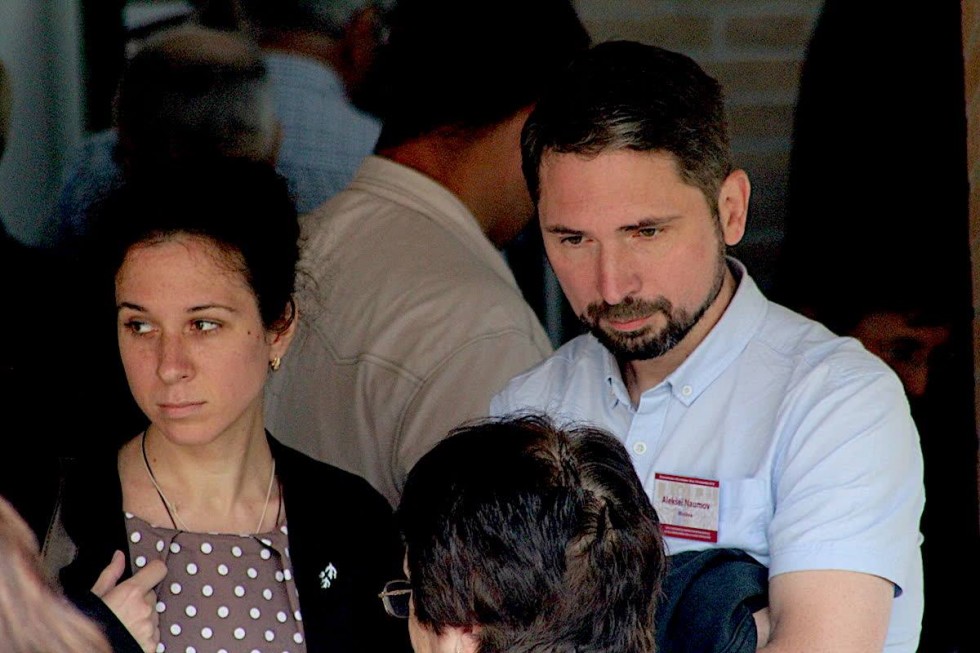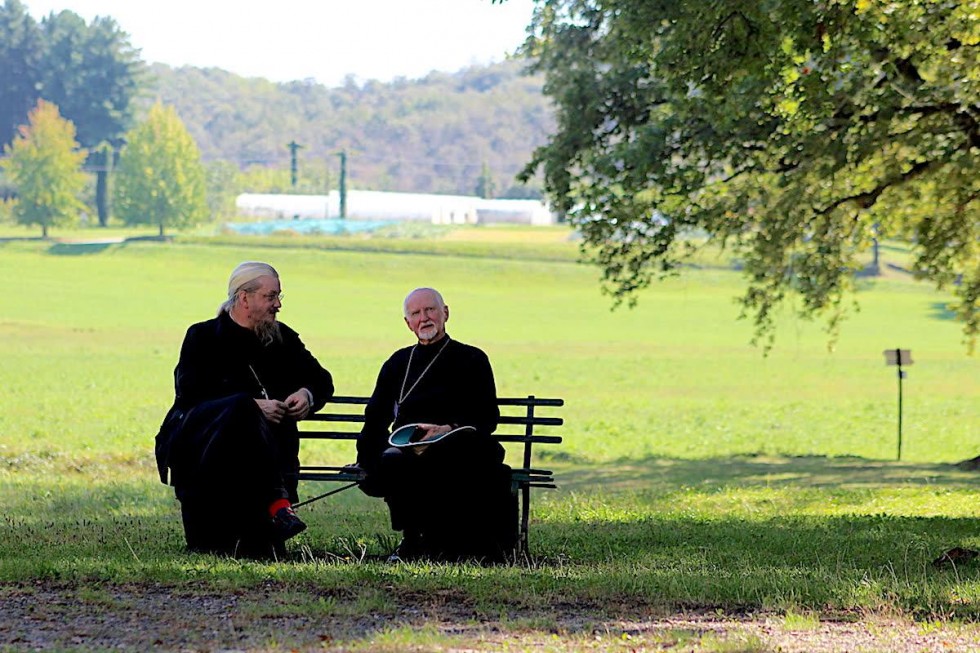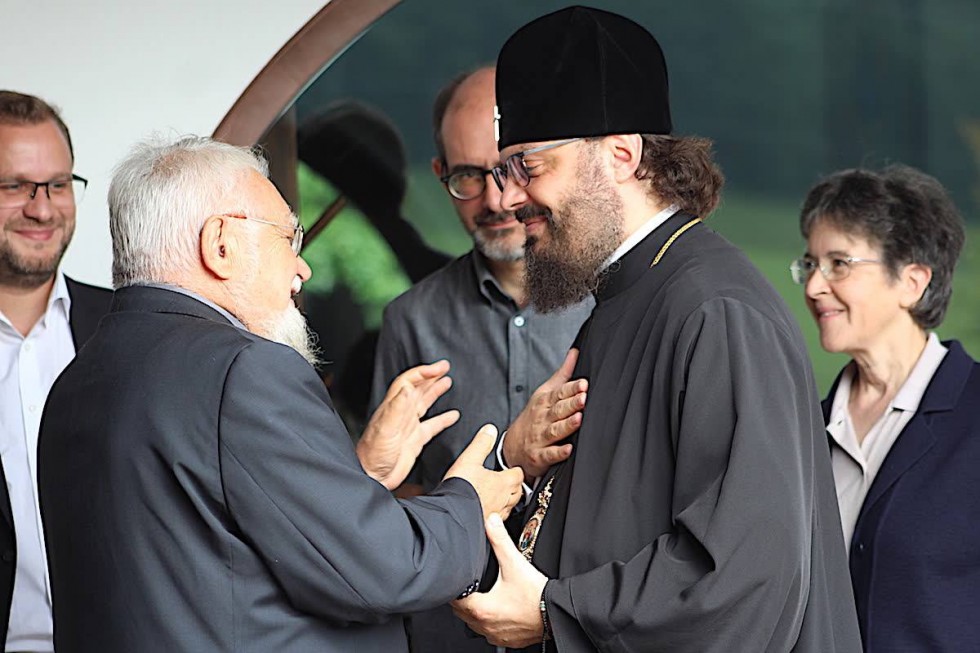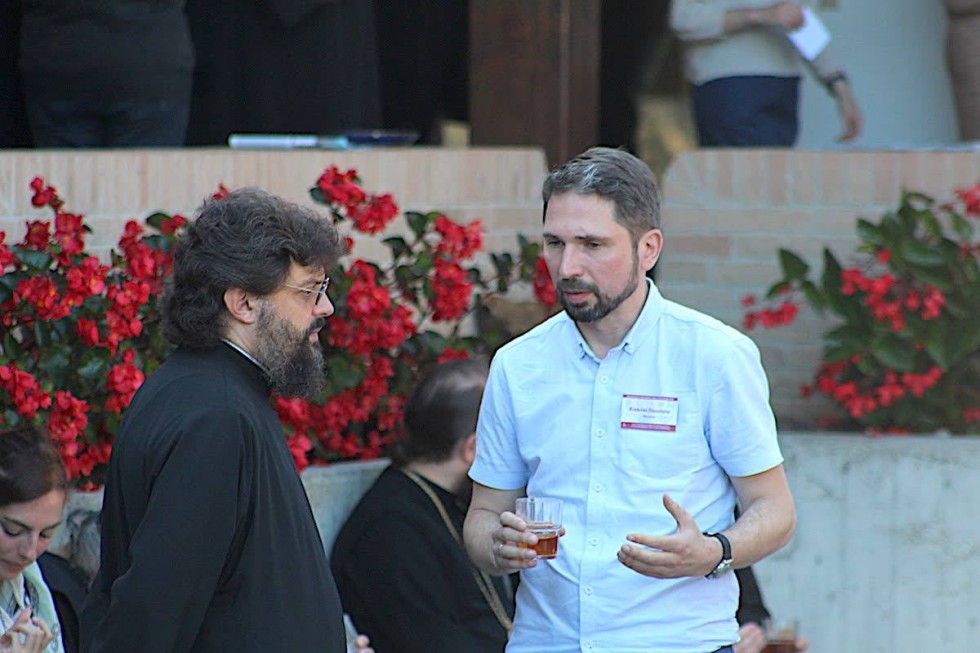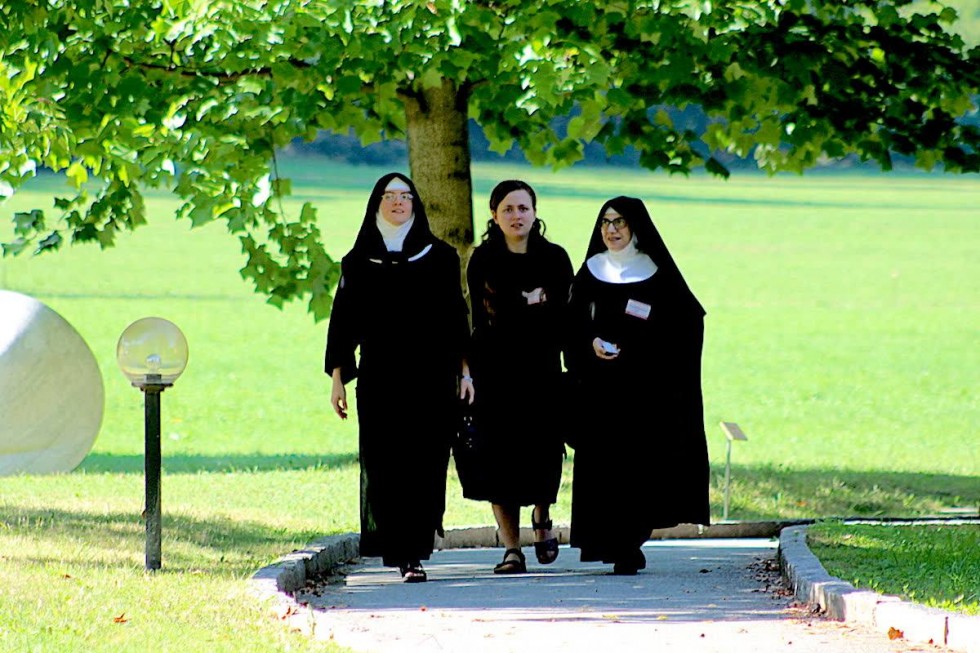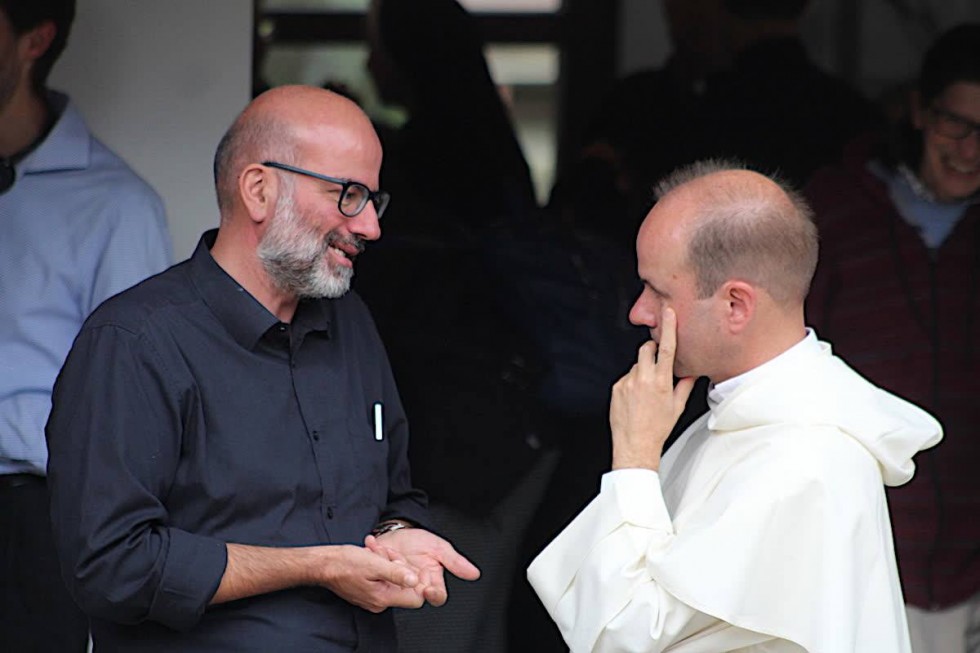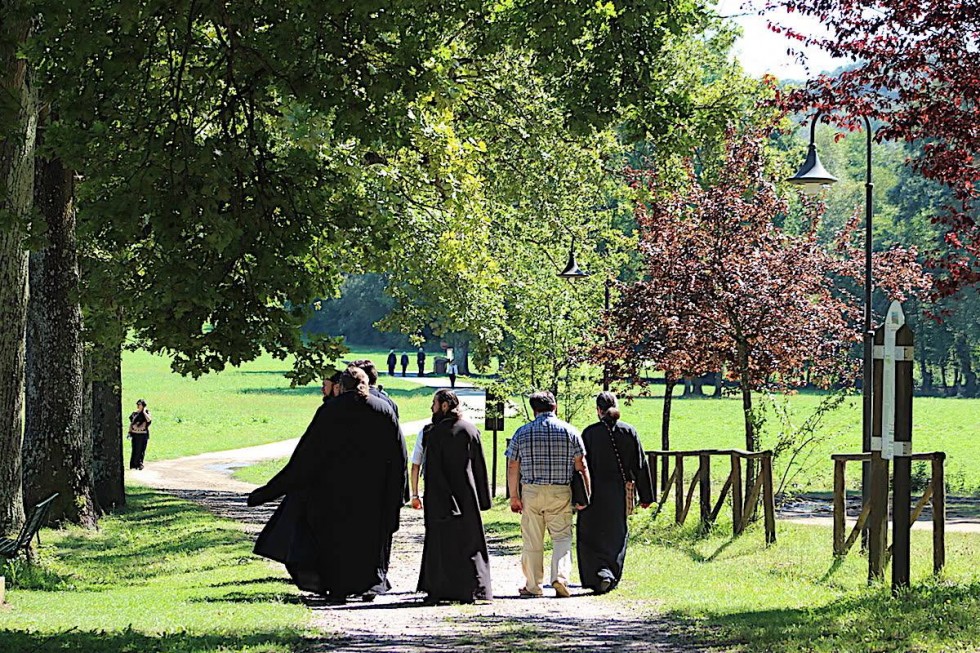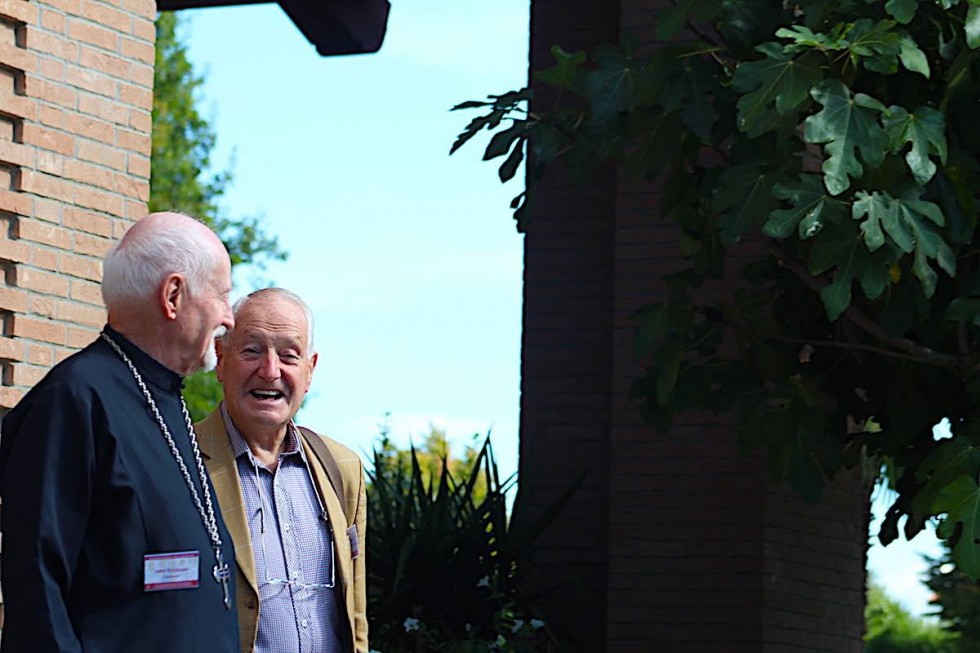The Human Person as Momentum
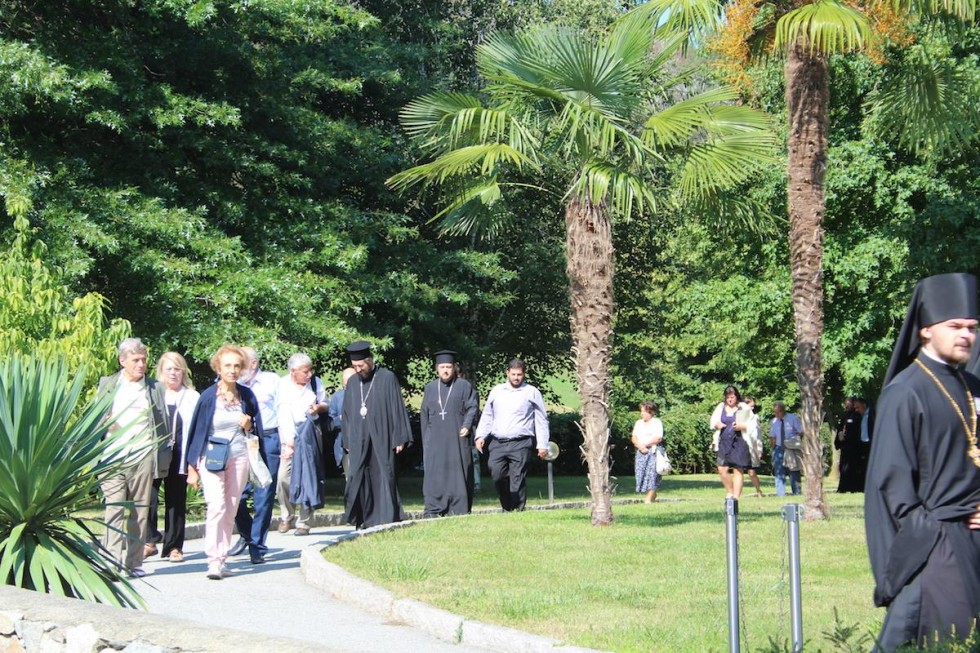
The Human Person
Answering the question about the hottest demand in Theology today, many of the Bose Conference participants spoke about Christian Anthropology. It is specifically at this point that Theology ceases to be either speculation or patristic history, and instead comes directly into contact with the nitty gritty of real life in the church and the world.
“Who is man and what is his place in the world? In society, the relevance of these questions is that how we answer them has a direct impact about what we think about marriage, sexual gender, and identity,” says Irenej Steenberg, Bishop of Sacramento, Vicar of ROCOR in the American West. “For us Orthodox Christians, the human person is at the centre of everything. For us, the question ‘who is man’, is directly tied to the question ‘who is God’.”
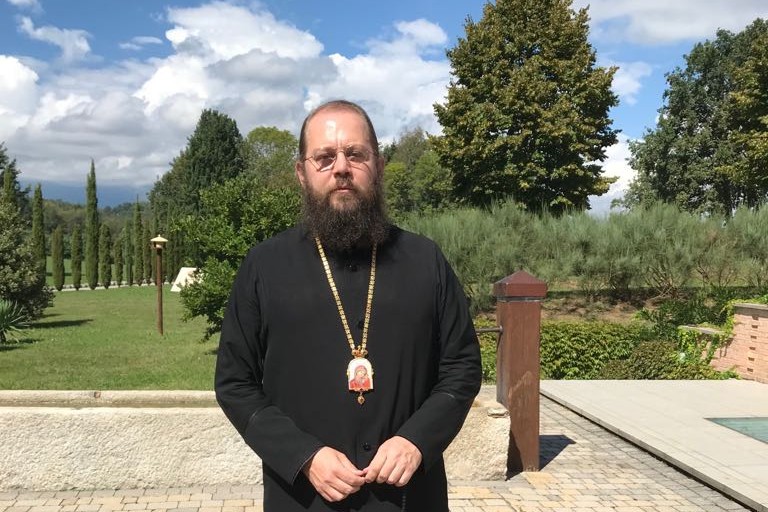
Irenej Steenberg, Bishop of Sacramento, Vicar of ROCOR in the American West
Calling Dogmatics, “more an instrument for better understanding God”, Vladyka Irenej notes that Ecology and interrelationships with people of other social groups (cultures, confessions, etc.) are also relevant topics in Theology today.
Honorary Professor of Thessaloniki Aristotle University, Petros Vassiliades, also believes that the focus of contemporary Theology has moved to Christian Anthropology. In particular, he notes the growth in relevance of the question of women’s service in the church. “At this point we’ve already done sufficient research into the role of women in the early church: it was so important that it was even seriously reflected in a liturgical fashion. We can’t and shouldn’t diminish the importance of this now,” says Professor Vassiliades, who favours the restoration of the diaconate for women in modern Orthodoxy.
Christian Anthropology brings Theology to some of the “hottest” questions about life: fellowship, creativity, freedom and the relationship between man and woman, just to name a few. “For instance, secular opinion looks at sexual gender not as something given at birth or given by God, but as a construction, and, it follows, that therefore this construction can be changed,” says Professor Vassiliades.
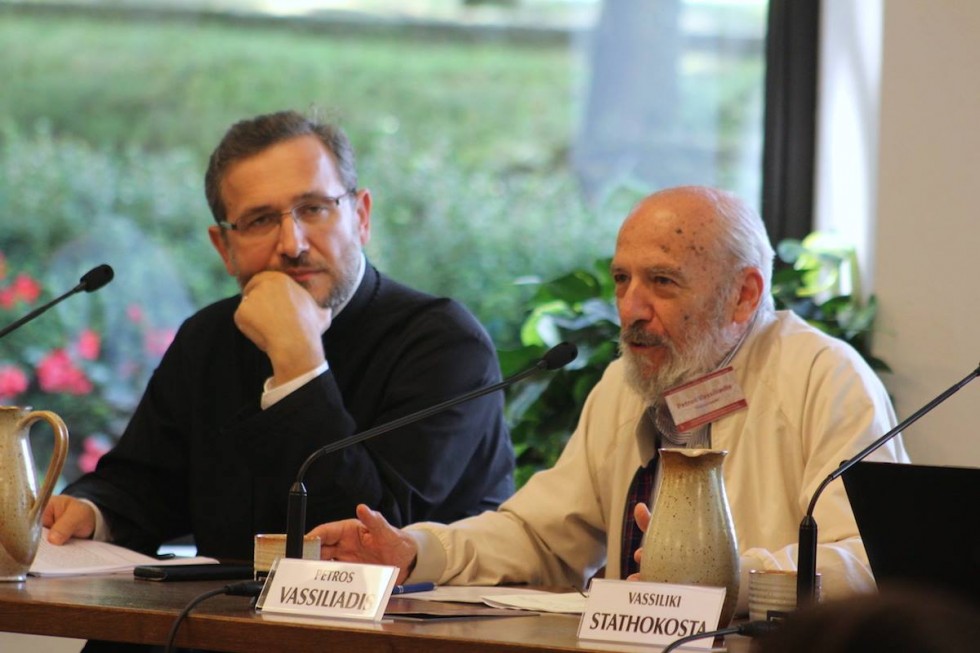
Petros Vassiliades, Honorary Professor of Thessaloniki Aristotle University (on the right)
Today’s theologians would do well to pay attention to man as a personal creature, not being afraid to come off as intolerant or un-Orthodox, as well as to remember that God’s revelation continues in our world, and isn’t a closed book. “Even the Holy Fathers of the Church differ in their views of exactly who man is,” Vassiliades, reminds us. “It’s important for us to see that humanity in the human person isn’t static, but unfolds together with the spiritual effort that a person asserts, and as his or her values change. When we speak of being created in the image and likeness of God, this means that we can become like God by constantly growing in our true humanity. Humanity, in this sense, isn’t something that is given to us, but something we ourselves need to seek… and to do this it is necessary to work.”
“In this sense, it is important what we mean by ‘spirituality’”, says Vassiliades, “do we mean what the secular world has in mind, or do we more mean something related to the Holy Spirit – charism, spiritual gifts, and calling? And we need to remember that Christian revelation doesn’t in any way oppose a spirituality that is bodily, or has its being in time.”
Meeting and Fellowship
Forgetting that today, as ever, God is revealing the Church, modern Christians risk not fulfilling their service to God and man, in favour of remaining somewhere behind the development of society itself, becoming like “salt that has lost its saltiness”. One of the main reasons for this is that Christians have forgotten how to live in community and often fail to achieve agreement between each other either in life, or in terms of theological perspective.
Professor Sebastian Brock, a member of the British Academy, one of the leading Syriologists, an academic consultant and participant in the dialogue with the non-Chalcedonian churches, believes that today the approach itself that we take to overcoming dogmatic disagreements needs to change. In particular, he spoke of the “mistaken expectation of unified verbal formulae for teaching the faith, whether we are speaking of Chalcedon or any other dogma. What we ought to be searching for, is agreement on which various dogmatic expressions can simultaneously affirm, in truth, who Christ is,” says Brock. “And at the end of the day, it is absolutely necessary to admit that it is not possible to exhaustively express the mystery of God’s incarnation in human language.”
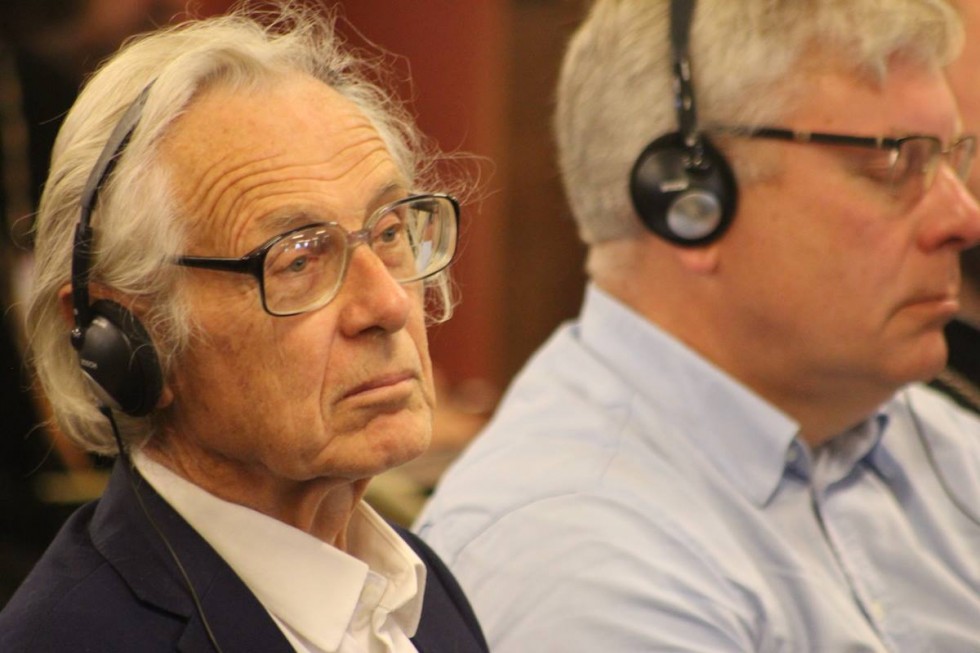
Professor Sebastian Brock
In thinking about the prospective for Orthodox theology in general, Archpriest John Erickson, who is former Dean of Saint Vladimir’s Seminary in New York, also notes the need for deepened fellowship within the church, given that this “helps us to overcome the temptation of schism and gives us more opportunity to meet and get to know each other.”
“I think this is important in terms of education, which also shouldn’t be reduced simply to the field of preparation in academic theology, the study of the Holy Fathers, and even homiletics,” says Fr John (Erickson). “Theological education should have its root in the life of the Church by means of dialogue between different schools and traditions, and not simply tend to the development of “theological sects”, which grow independently of one another.”
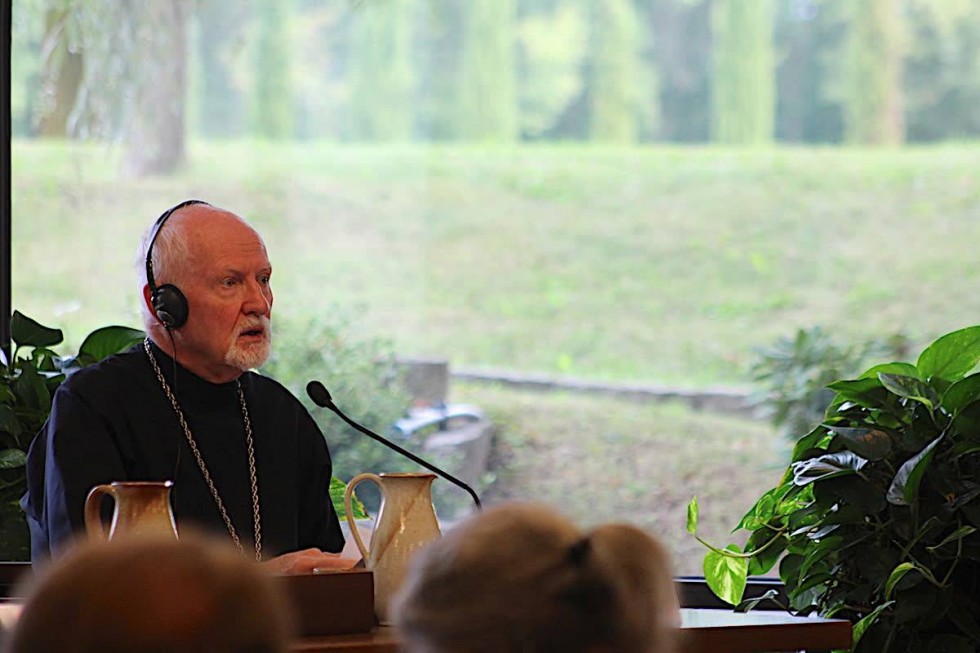
Archpriest John Erickson
For our young people, Fr. John (Erickson) believes that it is extremely important to be drawn into the life of the church. It is imperative that a person have the experience of fellowship with people who have less than he does, or who are less able than he is, as well as the experience of helping them, because in this aid is a true measure of our care for others. “In my youth, I tremendously loved reading to the blind or partially-sighted,” he recalls, “I loved to read books in general, but the main joy is that you can bring joy into someone else's life. That experience can take many different forms, and is as necessary to us as oxygen itself – especially for the younger person.”
As the developer of the concept of baptismal ecclesiology, Fr John (Erickson) also believes that today it is vitally important that we pay attention to how we understand baptism and entry into the Church. “Baptism presupposes a certain particular preparation, not only the study of a set of teachings about the faith, but the inclusion of the person into the real, day-to-day life functioning of the church community,” he says. “Godparents are necessary not so that afterwards there will be someone to care for the child. Their traditional significance is that there would be a person with church experience to help us in terms of choosing a Christian path – that a person, having prepared for baptism, would then be able to fully re-orient his life.” He also stresses that baptism mustn’t be taken on as an individual experience, but as enfolding into the life of a Christian community.
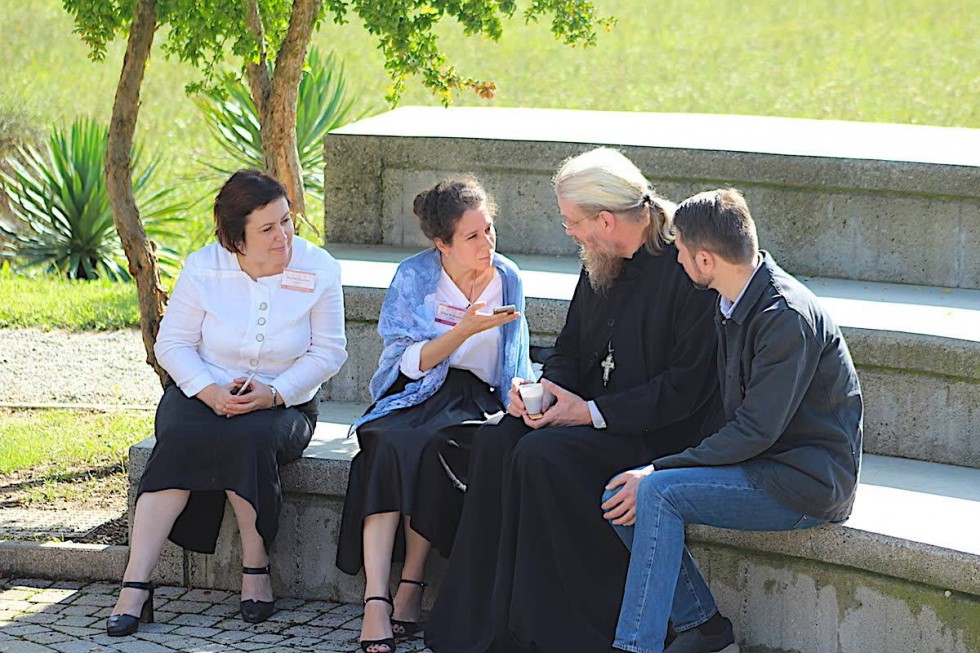
Archpriest John Behr during our interview
The Church
Whether we are talking about baptism, the Eucharist or another of the other mysteries of the Church, they are all associated with the Church’s service, which is “always about helping people to die – to bear their crosses, i.e. die to themselves, thereby gaining the possibility to live for others,” believes current Dean of St Vladimir’s Orthodox Seminary, Fr. John Behr. “For the Church – especially the church as a structure – it isn’t always easy to admit this, insofar as we are focused on the everyday,” Fr. John says. “It is very easy to turn church life, for instance, into social work. Yes, we need to help the poor and the homeless, but this isn’t the main goal, after all. The goal is to enter into another life, which Christ is proposing to us.”
“The witness of others is always necessary,” says Fr John, “so that we can understand that that other life really does exist. In the ancient church this was the witness that the martyrs. In the centuries that followed, after Emperor Constantine, the monastic movement took this witness upon itself. Our contemporary situation doesn’t resemble anything in the past, and demands its own answers.”
“Discernment and Christian Life”, is what this year’s annual Bose symposium on Orthodox spirituality was called. The symposium took place at the Bose monastery between 5 and 8 September. More than 200 people from 32 countries attended. St. Philaret’s Orthodox Christian Institute and the Transfiguration Brotherhood were represented by President of the Transfiguration Cultural-Educational Centre, Alexey Naumov, SFI Deputy Rector, Marina Naumova, and SFI Press Secretary, Sofia Androsenko.
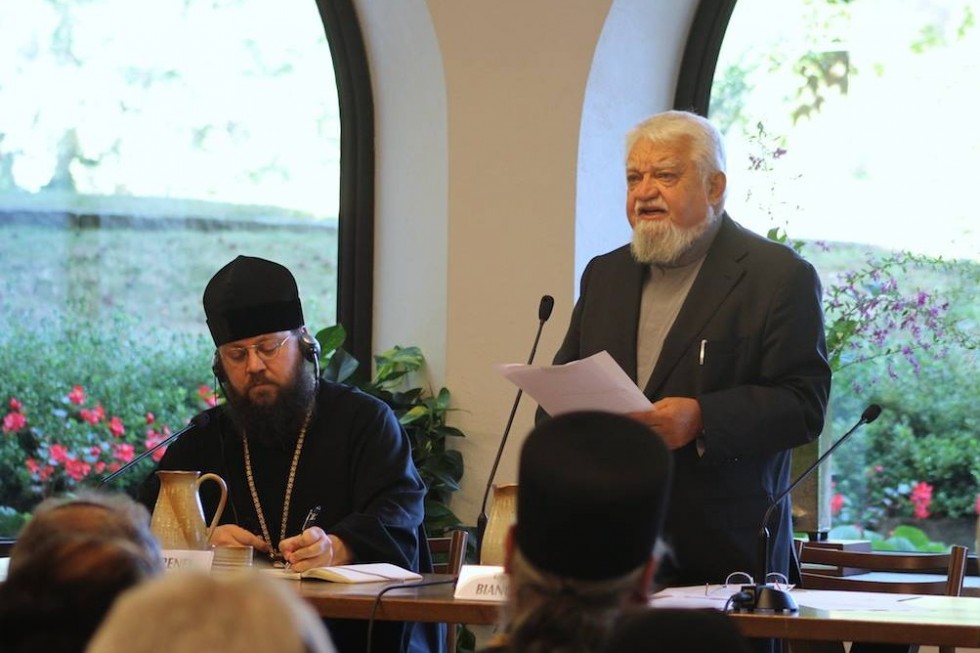
Bose Founder, Father Enzo Bianchi
